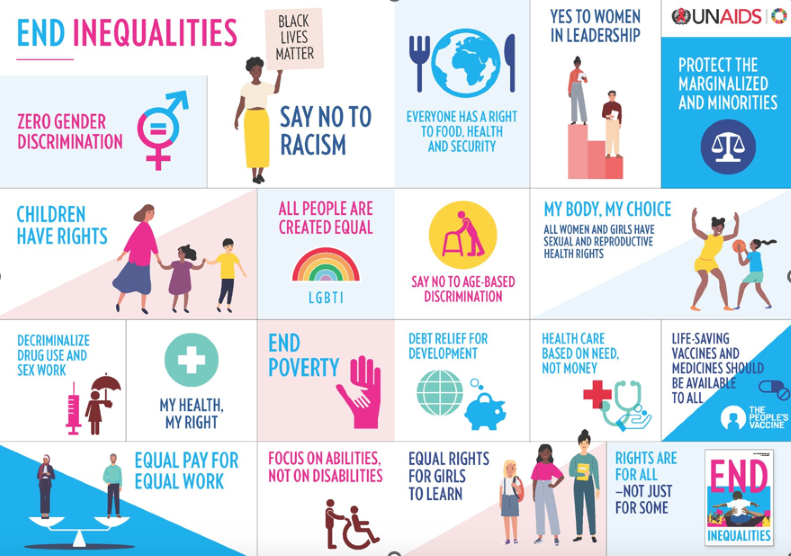How can we overcome discrimination in a pharmacy setting
It is fact that discrimination is less likely to happen in an organisation that recognises the benefits of an inclusive and diverse workforce. For example, employing a range of people from different backgrounds with different ages and experiences.
If you're a small organisation e.g., a community pharmacy with limited resources, there's still a lot you can do to prevent discrimination. Making your organisation more inclusive does not have to be costly or complicated.
Taking positive steps to prevent discrimination can:
- reduce the chance of employment tribunal claims and reputational damage
- make people happier and more productive at work
You should understand what the law states with regards to discrimination, your rights and responsibilities. You can do this by:
- recognising the benefits of an inclusive and diverse workforce because your customer group will also be diverse.
- putting policies and procedures in place e.g., a bullying, discrimination, and harassment policy – including how you will handle complaints along with an equality, diversity, and inclusion policy. These policies need to be kept up to date. Staff can be made to read these and sign to say they have read them as part of their induction.
- training and informing staff and managers.
- creating ways for staff to be heard e.g., clear simple reporting procedures and embracing an open door culture.
- making it clear how staff can complain if discrimination happens again with simple reporting procedures.
You should check all relevant policies to make sure they do not discriminate against anyone. This includes any policies you have on:
- absence
- data protection
- dress code
- flexible working
- recruitment
- social media
- training and development
- working hours
For example:
- if you have a social media policy, make it clear that people must not discriminate in any activity connected to their work.
- if you have a dress code, which is very common in a community pharmacy, make sure it's flexible enough to accommodate people's racial, religious, gender or gender identity needs.
Inform and train staff
Your employer should make it clear to staff what behaviour is acceptable and that they must not discriminate against anyone at work.
Doing this helps to:
- create a fairer and more inclusive workplace
- reduce the risk of 'vicarious liability' – this is when an employer could be held responsible if one of their employees discriminates against someone
Your employer should also train line managers and supervisors to recognise and address discrimination. They should role-model inclusive and non-discriminatory behaviours. Line managers and supervisors can have a lot of influence over how people in their teams behave.
Actions they can take include:
- making sure all staff know where to find relevant policies
- reminding staff of their responsibility not to discriminate against others
- training your staff to recognise and understand discrimination
- training your managers to deal with discrimination complaints
- providing regular equality and diversity training
Evaluate and measure change
The only way your employer will know if discrimination is being overcome in your pharmacy will be to evaluate and measure change. They should regularly check if policies and procedures for preventing discrimination and handling complaints are working or if they need to change. They should also regularly evaluate other steps taken. How they do this will depend on what they have done and any issues they were trying to address in the first place.
For example, they could:
- do anonymous staff surveys
- check the diversity of the staff
- see if staff turnover is higher among some groups than others
- do an analysis of roles and pay grades to see if staff from all groups are represented and paid fairly
- consult with trade unions
- see if complaints about discrimination decrease
If discrimination complaints increase
When employers first take steps to tackle discrimination, it can sometimes lead to more complaints. This should be viewed as a positive not a negative thing because a culture of reporting and understanding is starting to form.
This does not mean more discrimination is happening, only that it's being talked about. If you see discrimination is being taken more seriously, you might have more confidence to raise concerns.
This can be an opportunity for both you and your employer to deal with problems that were not dealt with before.

